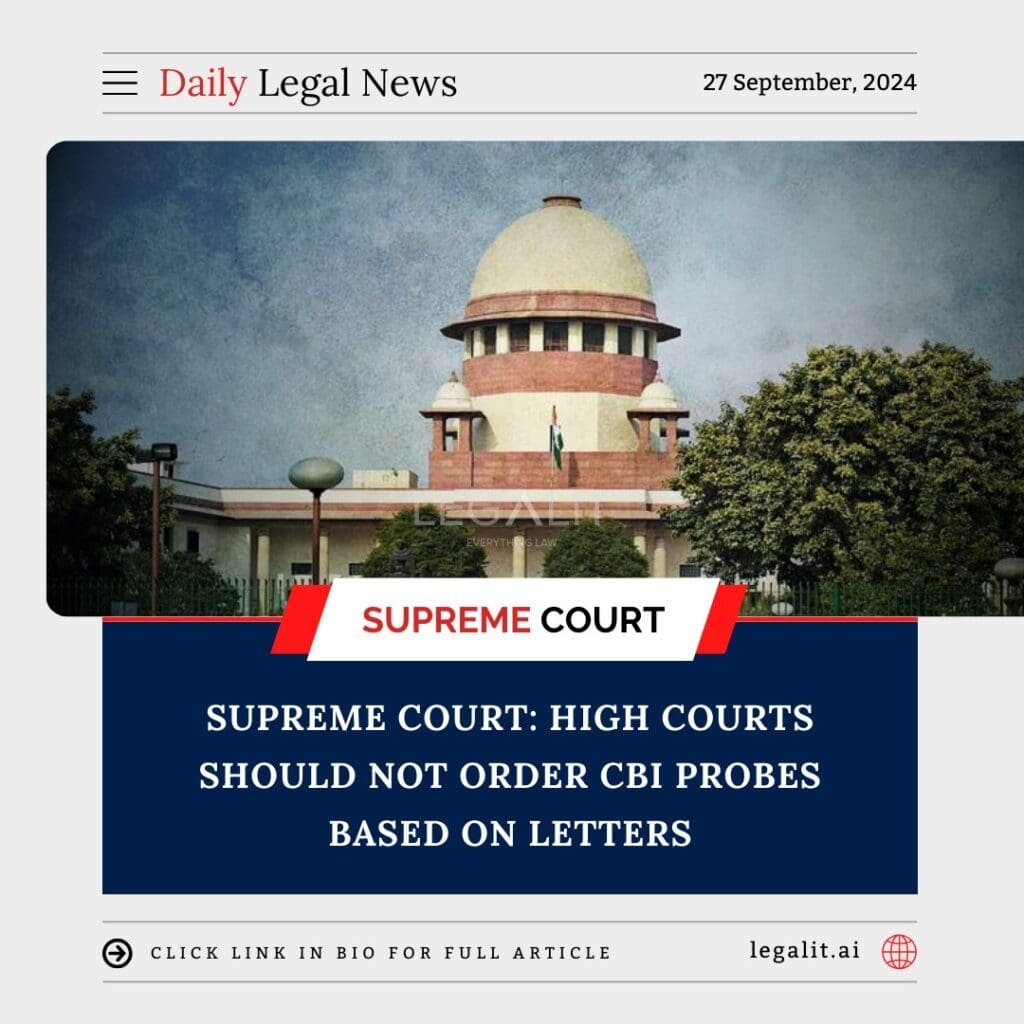
The Supreme Court of India has ruled that High Courts should not order Central Bureau of Investigation (CBI) probes solely based on letters or informal communications. This ruling emphasizes the need for judicial restraint and careful scrutiny before involving central agencies like the CBI in investigative matters.
1. Background of the Ruling
The Supreme Court’s decision came in response to cases where High Courts ordered CBI investigations based on letters or petitions without a formal complaint or an FIR. The Court expressed concern that such actions could undermine the standard legal processes and protocols that govern investigations in India.
The apex court highlighted that a CBI probe should not be initiated lightly, as it carries serious legal and administrative implications. The Court underscored that such investigations should be reserved for situations where the local police or state investigation agencies are incapable of conducting a fair or efficient investigation, and not based merely on letters or speculative claims.
2. Judicial Restraint and the Role of High Courts
The Supreme Court emphasized that High Courts must exercise judicial restraint when dealing with requests for CBI investigations. The power to order a CBI inquiry is an extraordinary one, and should be used sparingly. The Court warned that directing CBI probes based on insufficient grounds could lead to unnecessary interference with the functioning of local investigative agencies and create confusion within the law enforcement hierarchy.
In its ruling, the Supreme Court stated that High Courts should not bypass procedural requirements when ordering a CBI probe, as doing so may undermine the legitimacy of the investigative process. It reminded lower courts that there are established protocols for initiating investigations and that these must be respected to maintain the rule of law.
3. Implications for Future Investigations
This judgment sets a precedent that could limit the use of CBI probes in cases where there is no formal complaint or evidence of wrongdoing. It also acts as a reminder that High Courts must base their decisions on well-founded legal grounds and not on informal communications, such as letters from petitioners or concerned parties.
The Supreme Court’s ruling ensures that the CBI is not overburdened with cases where the need for a central investigation is not clearly justified. It also reinforces the role of state and local law enforcement agencies in handling investigations, unless there is compelling evidence that their involvement could lead to bias or injustice.
4. Conclusion: Upholding Judicial Integrity
The Supreme Court’s ruling reaffirms the importance of following due process when ordering investigations, particularly when involving a central agency like the CBI. By ensuring that High Courts do not rely solely on letters or informal requests, the judgment helps maintain the integrity of the investigative process and prevents misuse of central investigative powers.
The ruling is a significant step in ensuring that judicial orders for CBI probes are based on solid legal foundations, preserving the balance between local law enforcement agencies and central investigative bodies.
[ajax_laod_more]